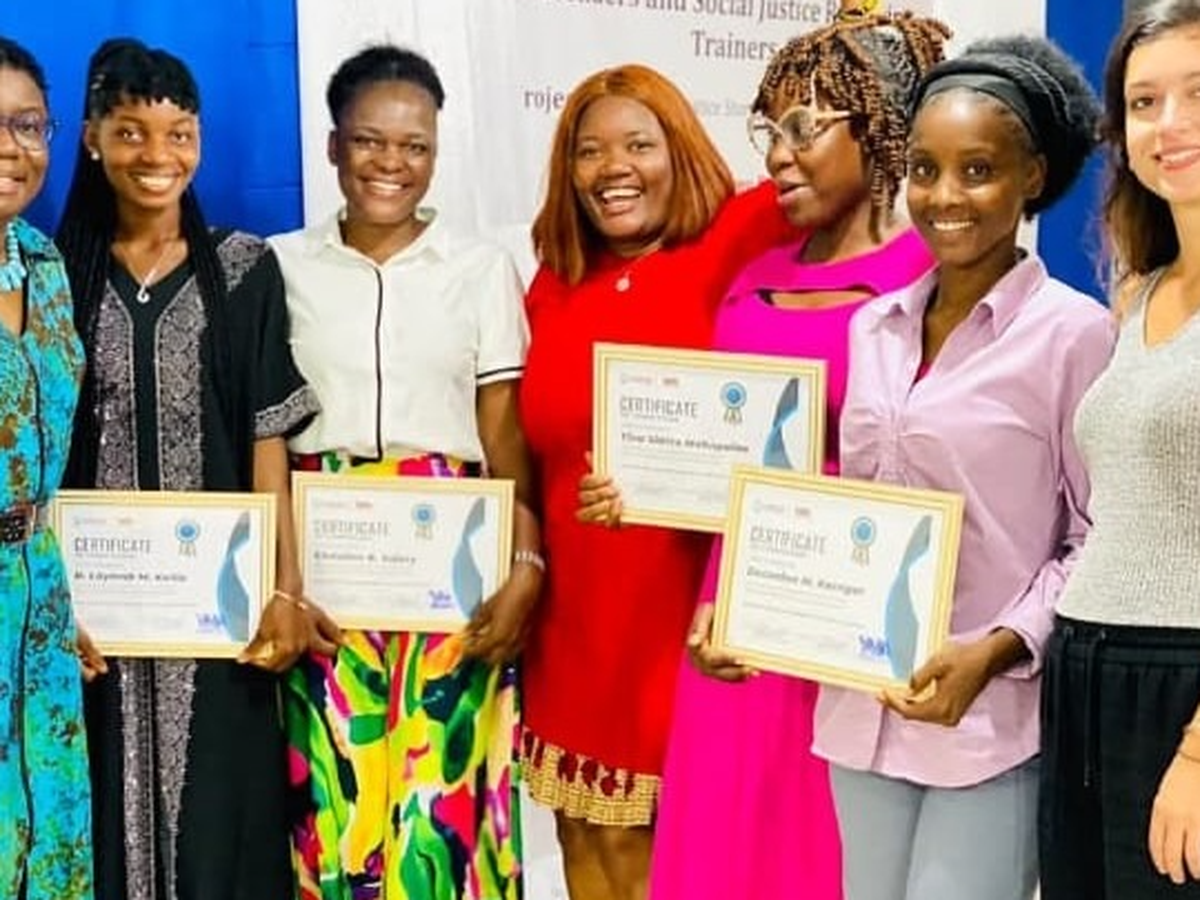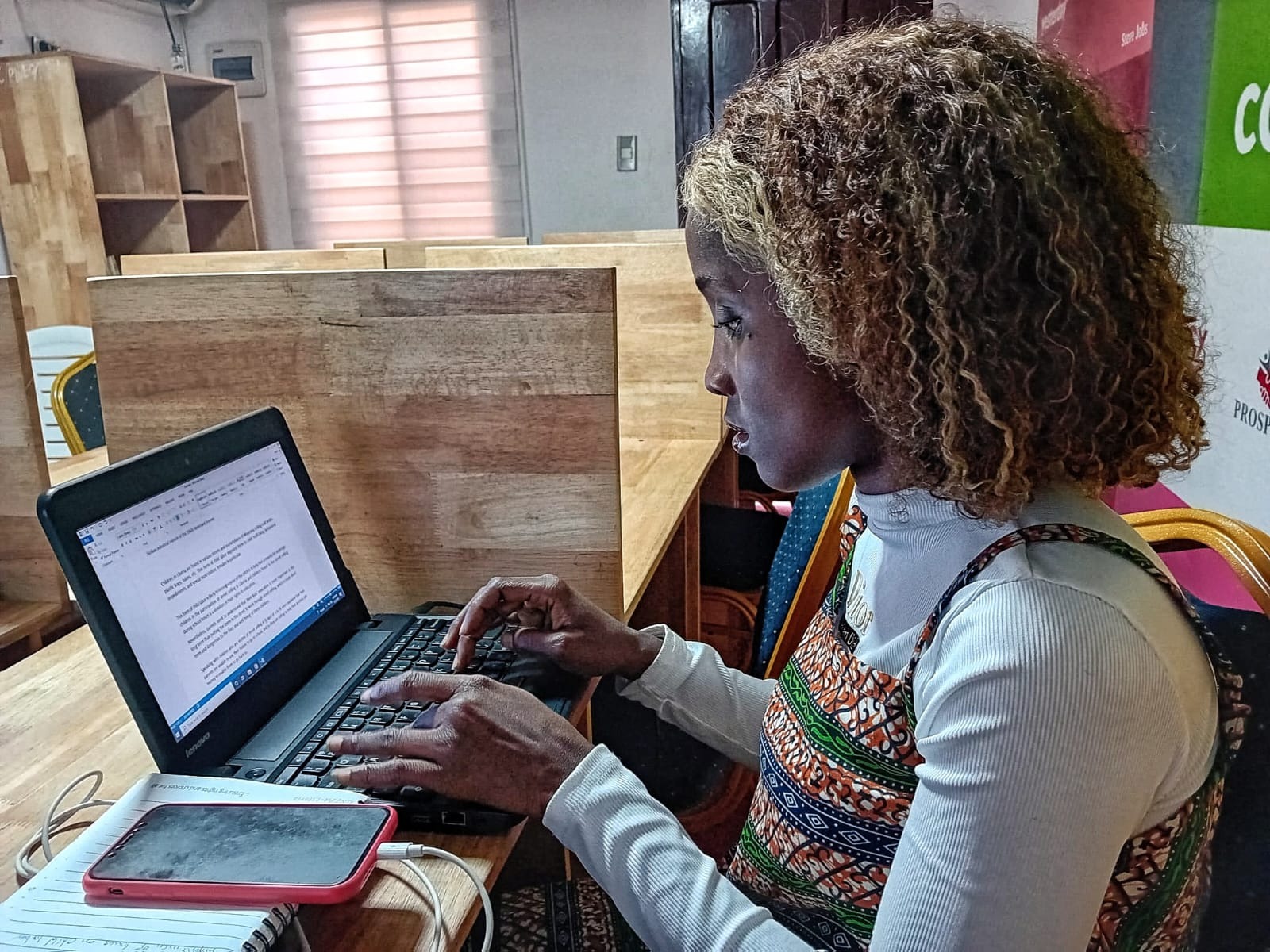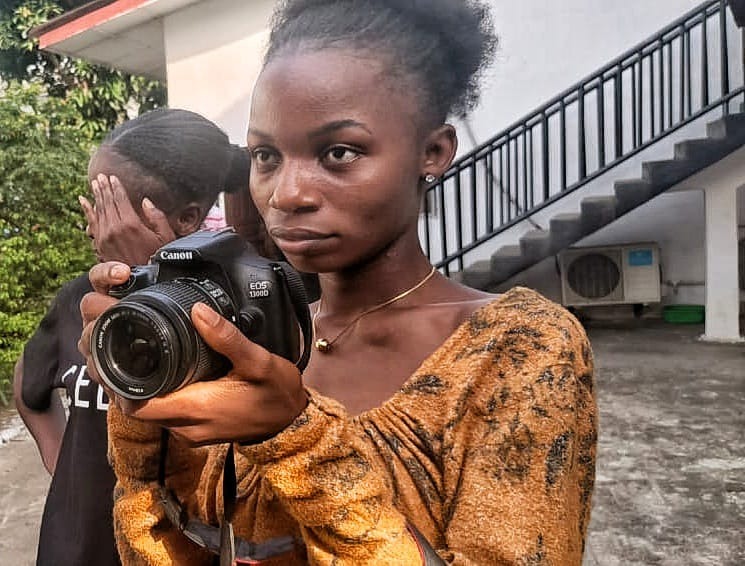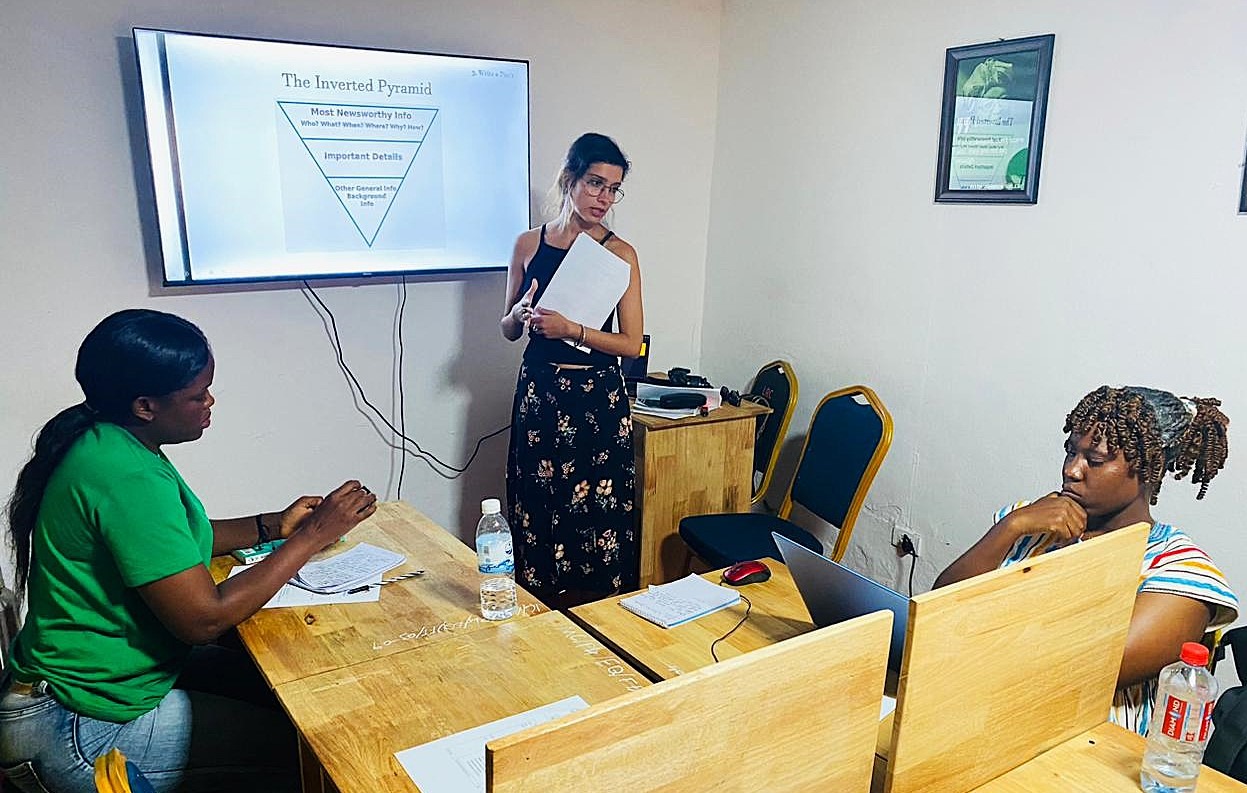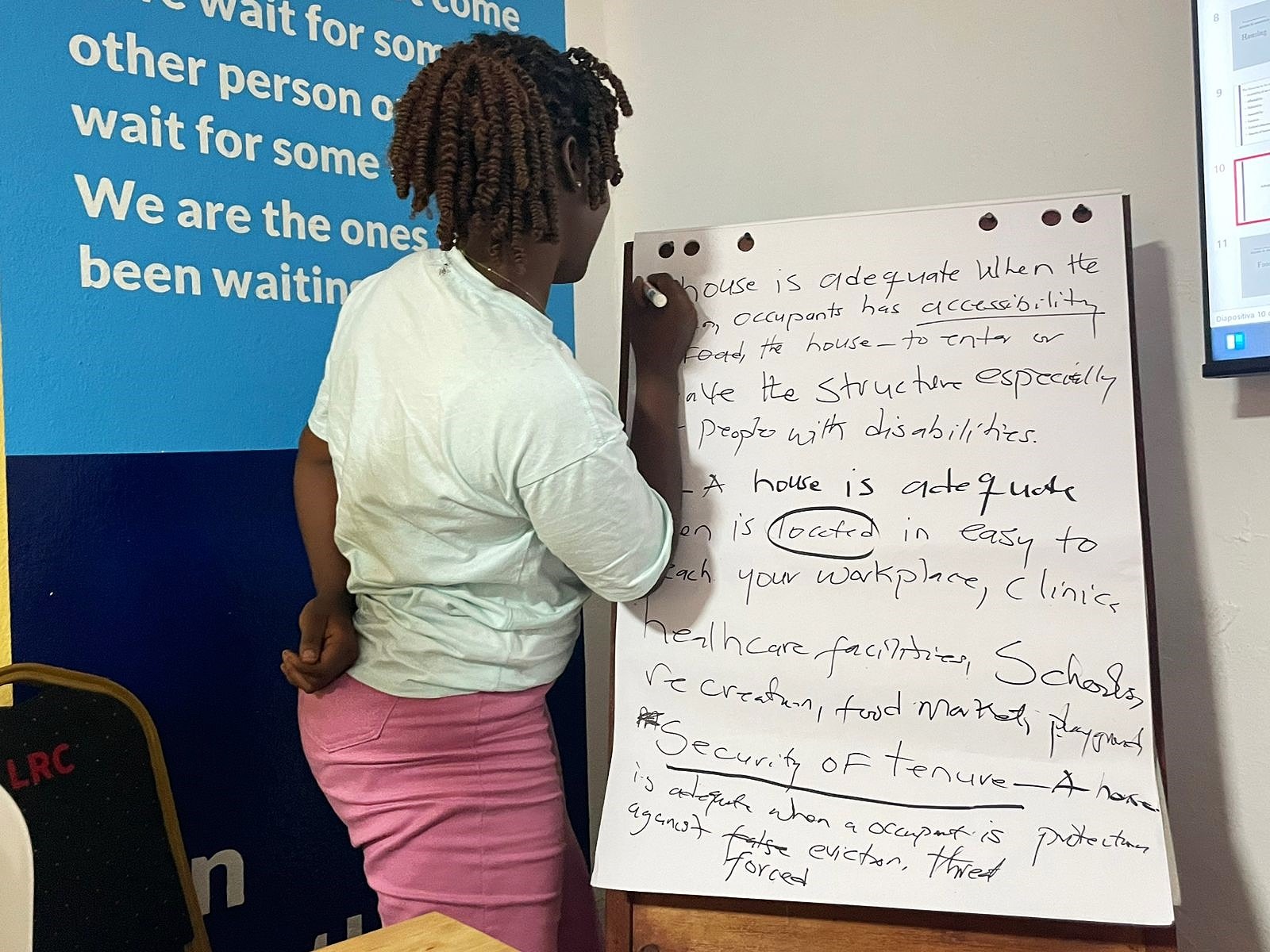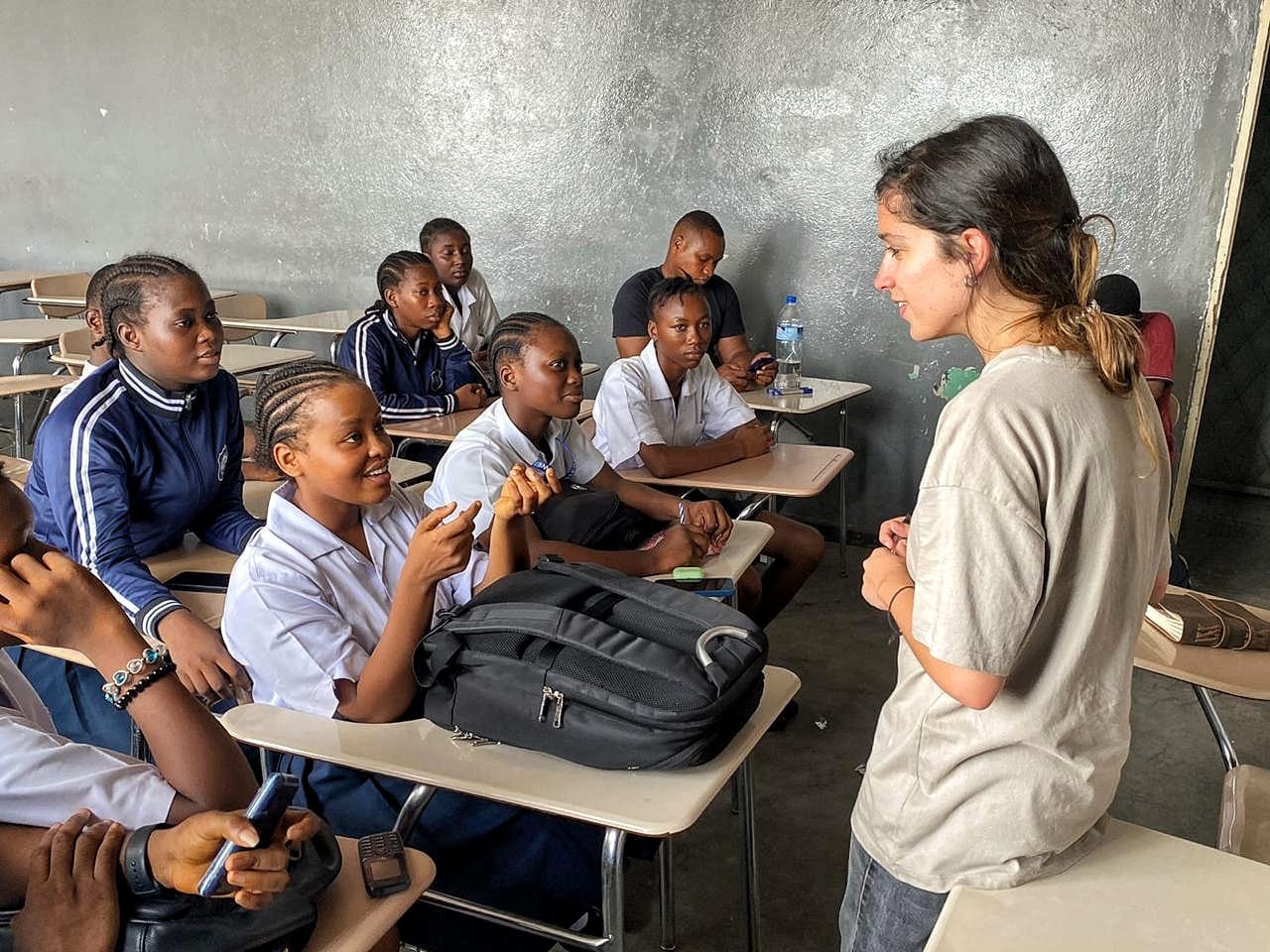The first time I set foot in Liberia was on April 7, 2024. It was my first time in the country, my first time in Africa. Until then, I had been documenting social injustice stories in Europe.
Social justice journalism has been my dream since I was a girl and the profession I love doing today. So, when a friend told me one day, "Come and visit me here in Liberia, explore the country, gather stories—there are so many to tell," I thought about it for a couple of months.
Then one morning, I told him yes, I would go. It didn't take long to realize that my focus had to be on women.
After extensive research, I decided to document the truths behind clandestine abortions in the country's rural areas, to talk with those who had gone through them, to dig into why this happens and how these women’s bodies and lives had evolved since that decision. I left, and a few months later, my first reportage from Liberia was published. More would have followed.
From that moment on, I decided that empowering young Liberian women would be my focus.
As a volunteer, I joined a local NGO which gives journalism courses to students aged 15 and 16. I remember as if it were yesterday the exact moment my eyes crossed the doorway of a classroom at the College of West Africa in Monrovia.
I remember it so well because out of fifteen students, 14 were women.
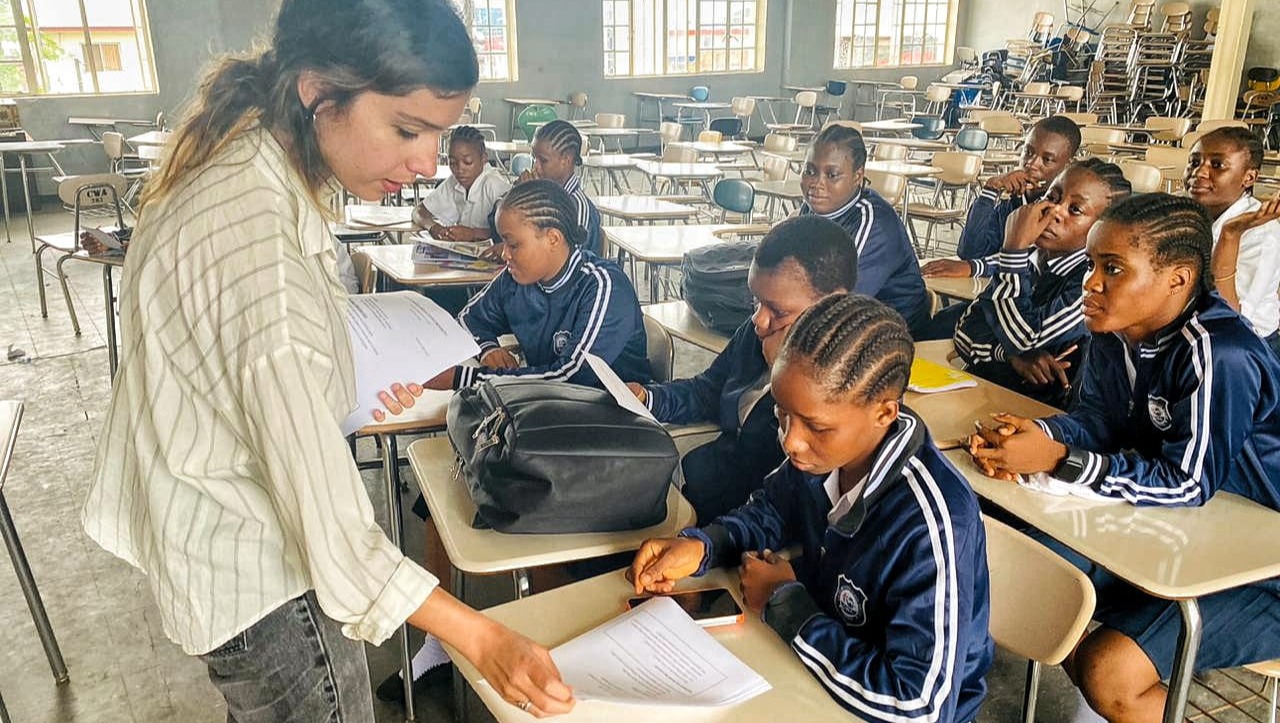
They were all young women who, at the end of their school day, had decided to take my brief course on social justice journalism. When I asked them what social justice meant, no one could give me a definition. Yet they knew the importance of a kind of journalism that puts the human at the center, trying to be a bridge between those who should ensure a healthy, educated, and promising society, and those who are denied all of it daily.
Those young girls knew this well—better than their male classmates. Just as their mothers and grandmothers knew it.
That’s why they were there that day, sitting at their desks, completely absorbed in my words, excited to know they would see me again in two days, that they could continue to learn more.
For them, this was a huge opportunity. They were bright, passionate girls with a refined language, keepers of knowledge they only wanted to expand.
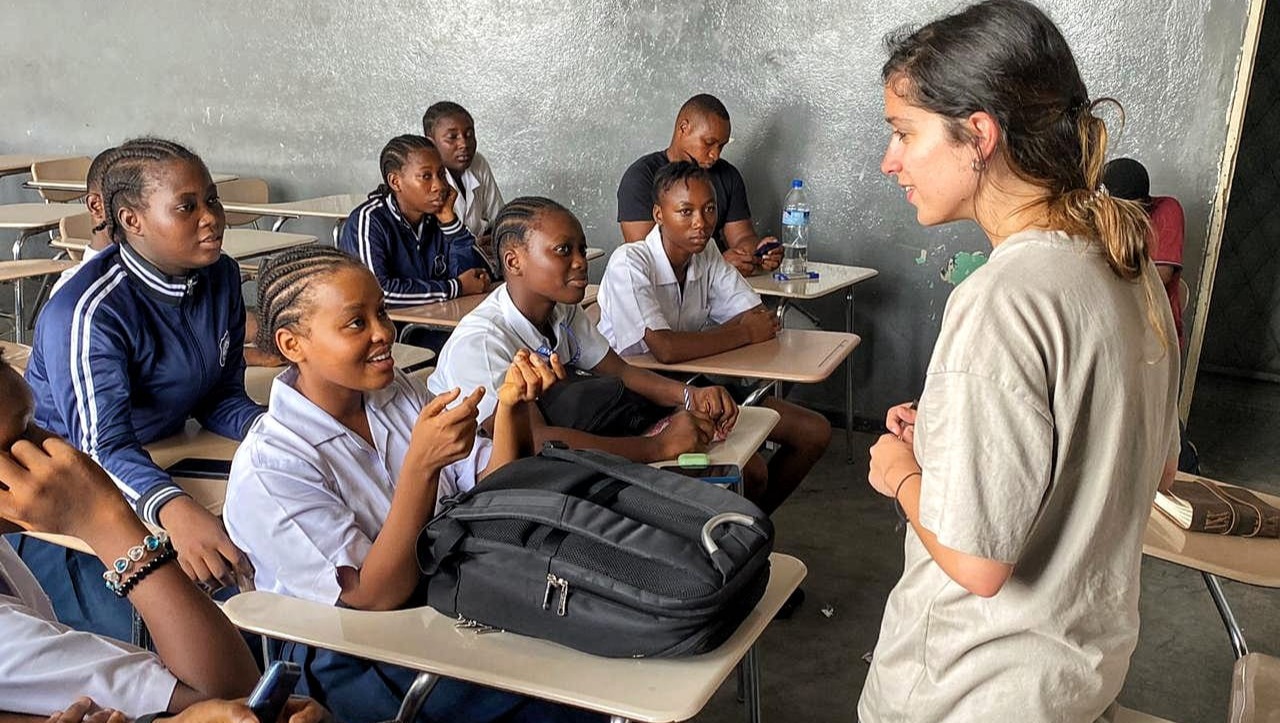
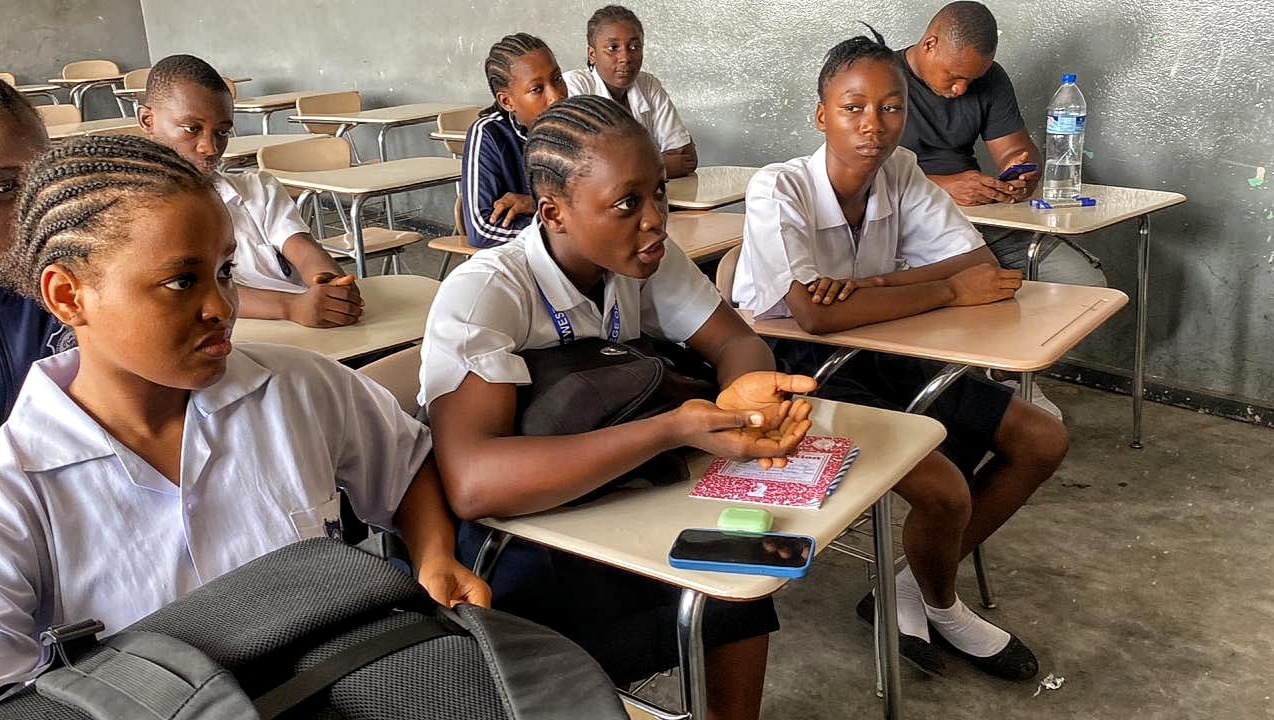
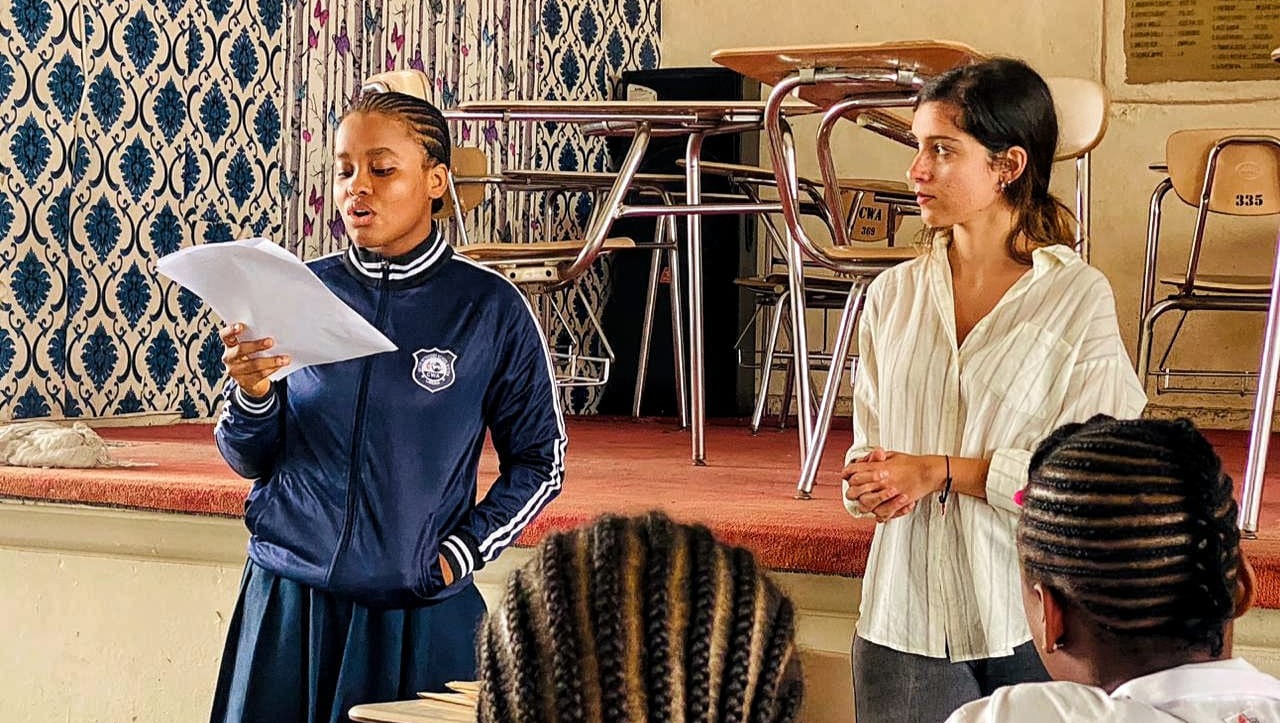
-
THOSE DAYS OF VOLUNTEERING SPARKED AN IDEA: to create a real, impactful project that would support young Liberian women journalists, from aspiring reporters to those already in the field.
I worked on it for six months until we received approval. USAID funded it. The project was supposed to last 20 months, but after two, the Trump administration shut down 90% of USAID projects in Liberia, including mine.
But those months were important; we did so much.
We successfully completed the first training for our initial group of women journalists and gave them their course completion certificates.
We had just begun the fieldwork when we received the notice to halt work, and soon after, the project was officially shut down.
The stories they were working on would have covered themes like child labor, employment discrimination against people with disabilities, and war victims.
-
This is a photo that one of my trained journalists took of a Liberian 12-year-old working child. He was sent by his parents to live with his boss in order to help pay for his school fees. This was the first picture she took with a camera independently in the field after our training.
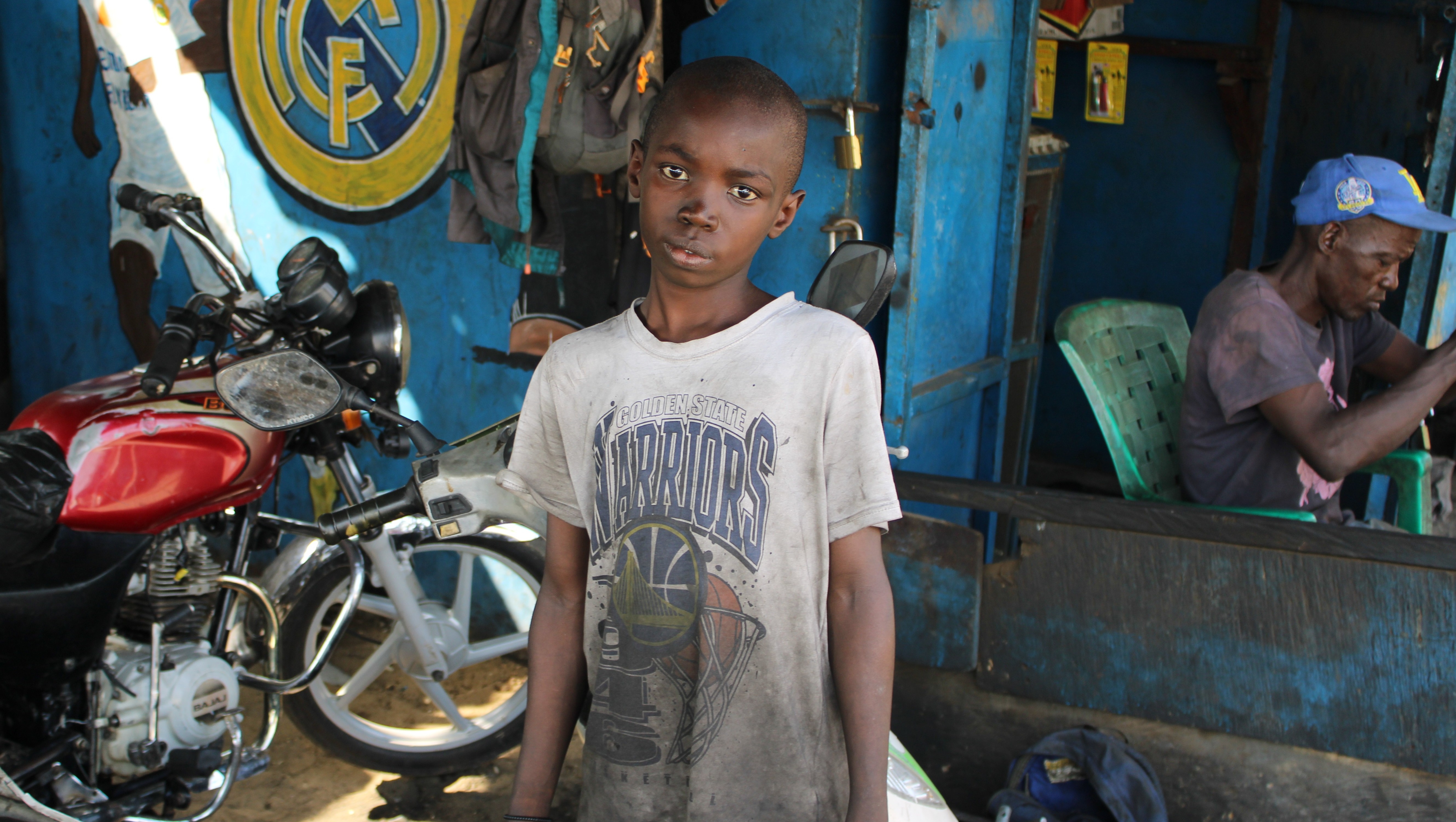
-
WHY I AM LAUNCHING THIS CAMPAIGN
Today, the people of Liberia are suffering the severe effects of recent USAID funding cuts. Globally, it is the country most affected in terms of GDP by these reductions, which have had a devastating economic impact and disproportionately impacted the nation’s most vulnerable populations, particularly children and women.
Your donation will not just save a project; it will directly support one of the groups hit hardest by recent changes: women, their education and their future.
With your donation you will contribute to:
- Rehiring our team of three talented young Liberian women journalists and empowering them to train 20 female journalism students across five Liberia counties.
- Allowing me to return to Liberia and continue my work.
- Re-purchasing essential equipment and covering operational costs.
- Funding crucial human-centered investigations that hold power accountable.
- Building a sustainable, independent future for these young women.
-
WHO WE ARE
My name is Graziana Solano, and I am an independent reporter specializing in narrative social justice journalism. My work has been featured in prestigious European publications like El País, the leading newspaper in Spain, and L'Espresso, the most prestigious current affair weekly magazine in Italy.
At the heart of my journalism project in Liberia is a powerful partnership with Mmonbeydo Joah, a lawyer, feminist, and one of Liberia's most influential voices for women's rights.
As the leader of the Organization for Women and Children (ORWOCH), she has dedicated her life to ensuring that everyone—men and women, boys and girls—can live free from violence and have a say in decisions that affect them.
Joah’s leadership has already led to critical change in Liberia, including her successful lobbying for the 2019 Domestic Violence Law.
Through ORWOCH, she champions initiatives like the 'Raise the Bar' Leadership Program, which actively works to dismantle patriarchy and misogyny.
Her genuine commitment to the women's rights movement makes her and ORWOCH the perfect partners to help us rebuild and sustain this project.
-
THE PROJECT IN DETAIL: KEY OBJECTIVES
A) Investing in Education, Empowerment and Future Opportunities for Young Liberian Women Journalists
Liberia has made strides in women's empowerment, yet significant challenges persist. The latest nation's Gender Inequality Index (GII) score of 0.646 (167 out of 177 countries) highlights the urgent need for continued intervention.
Alarmingly, the latest available World Bank data shows an adult literacy rate of 62.7% for Liberian men and 34.1% for Liberian women.
Furthermore, 74% of Liberian women are concentrated in informal sector jobs according to a recent World Economic Forum Report, limiting their economic independence and formal employment opportunities.
The prevalence of unintended pregnancies , with 52% in 2021 leading to 35% abortions, underscores the critical need for comprehensive education and empowerment initiatives.
My project directly addresses these disparities by building a cadre of 23 young Liberian women reporters.
This initiative, exclusively for selected female journalism students and young female journalists, aligns with the World Bank's findings that early investments in young women lead to long-term benefits such as lower fertility rates and increased workforce participation while showing how education is a key factor in helping young women transition into formal employment.
Participants will gain invaluable skills and knowledge, including:
• Mastery of social justice reporting and impactful storytelling: Equipping them to effectively document and disseminate human rights stories.
• Enhanced critical thinking and advocacy skills: Fostering their ability to challenge injustices and champion civic participation.
• Professional development and employment pathways: Contributing to wider and professional employment opportunities in human rights defense and social justice reporting, including fostering private sector engagement for a sustainable fellowship fund.
• Leadership and training capabilities: Three already trained Liberian women journalists will become lead trainers, guiding 20 female journalism students from five target counties (Montserrado, Margibi, Grand Bassa, Bong, Nimba) through an intensive 48-hour social justice reporting and storytelling course.
B) Redifining Storytelling for Impactful Social Justice Advocacy
The existing media landscape in Liberia often struggles with disseminating high-quality, unbiased, and impactful information.
Traditional reporting on crucial issues frequently focuses on transient political scandals, leading to public disillusionment and disengagement from fundamental social justice issues.
This project seeks to bridge the dangerous chasm between institutions and citizens by pioneering innovative methods for collecting, narrating, and disseminating accounts of human rights violations and social justice issues.
Through this initiative, participants will learn to:
• Collect firsthand testimonies: By gathering stories directly from those who have suffered the profound impact of human rights violations in communities, suburbs, hospitals, schools, street markets, rural areas.
• Craft compelling narratives: Centering stories around individual protagonists who embody broader collective experiences, fostering profound empathy and identification among audiences.
• Amplify marginalized voices: Focusing on critical issues such as gender-based violence, human trafficking, child labor, gender inequality, lack of sex education leading to high rates of unintended and teenage pregnancies, female genital mutilation, corruption within the local health sector.
• Utilize diverse dissemination channels: Ensuring widespread publication of stories on local radio stations and in national newspapers, distributing hard copies in strategic public locations, and collaborating with Human Rights, Education and Health CSOs.
C) Fostering Dialogue and Community Identity Across Generations
Liberia's history has been profoundly shaped by ethnic divisions and economic disparities, hindering national unity and fostering social barriers. Gender-based biases further impede societal progress, contributing to the prevalence of violence against women.
This project will actively encourage constructive dialogue and build a sense of community identity by:
• Disrupting preconceived notions: Students will undertake formative fieldwork, building direct relationships with young people and women from diverse social, economic, and ethnic groups.
• Facilitating intergenerational and cross-group dialogue: Organizing thematic roundtables in Monrovia that bring together student reporters with male and female students from schools outside the city. These sessions will explore shared challenges like gender inequality, menstrual stigma, parental gender bias in education, lack of sex education, and stereotypes surrounding male emotional expression, explicitly including young men in these conversations.
• Strengthening feedback loops: Working within local coalitions to enhance communication on key human rights advocacy issues between the Government of Liberia, civil society, the private sector, and citizens.
• Promoting awareness and challenging stigmas: Contributing to a new generational movement that affirms and exercises the right to expression and civic participation by collecting and reporting human rights violations, raising awareness about fundamental social justice issues and encouraging women participants to prioritize their education, freedom, professional ambition, and economic empowerment.
-
PROGRAM ACTIVITIES
Activity 1: EMPOWERING A NEW GENERATION OF YOUNG LIBERIAN WOMEN JOURNALISTS
This project is a comprehensive initiative to train and empower a new generation of 23 Liberian female journalists and journalism students across five key counties.
My goal is to equip them with the skills to become powerful social justice reporters, trainers, and advocates for social justice.
My Two-Phase Training Model:
Phase 1: Trainer Development: I've already completed an intensive 48-hour workshop for four Liberian young women journalists and gave them their course completion certificates.
They were selected from a pool of 15 candidates based on their experience and commitment. (Only three of them moved on to the next stage).
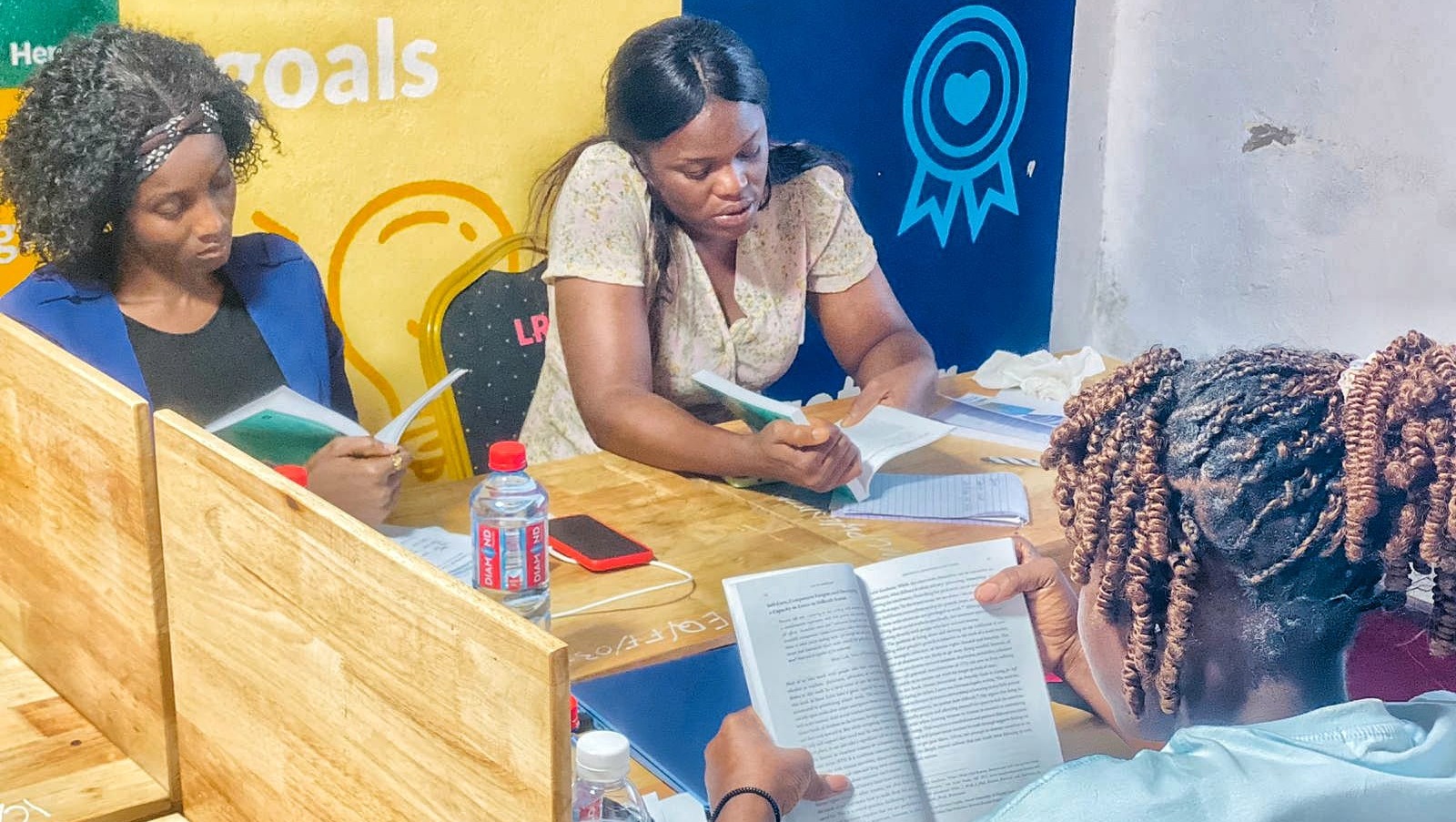
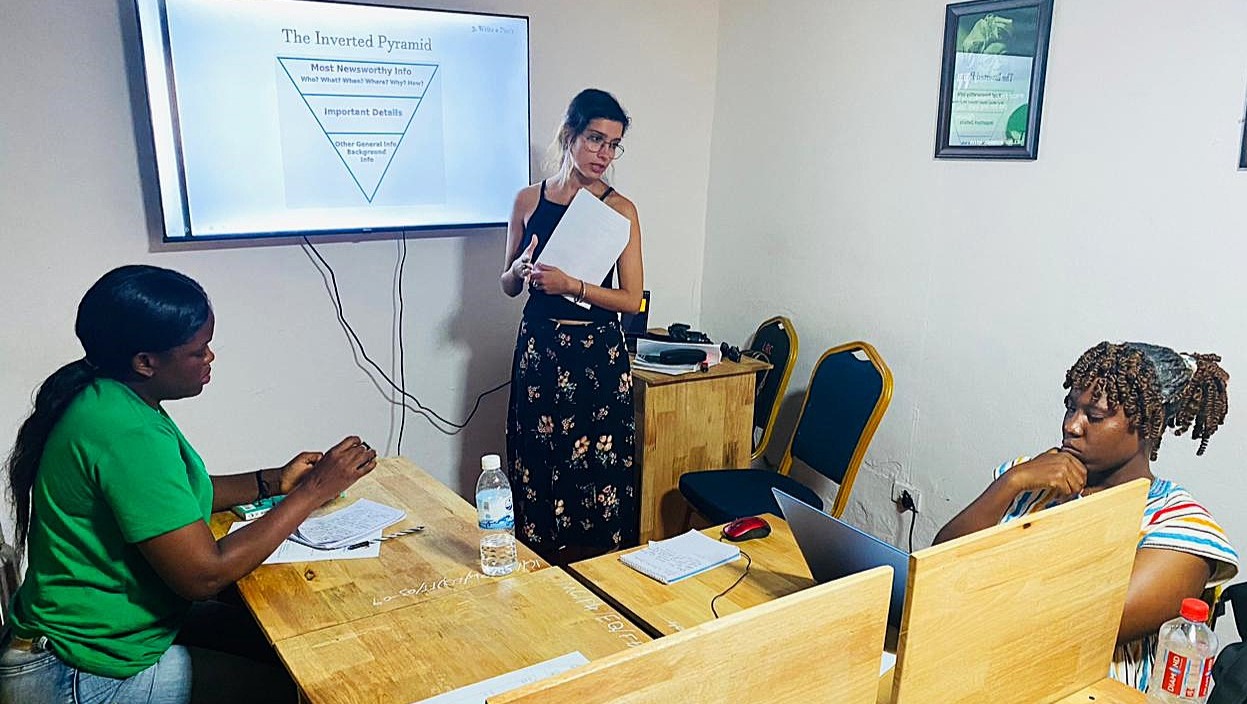
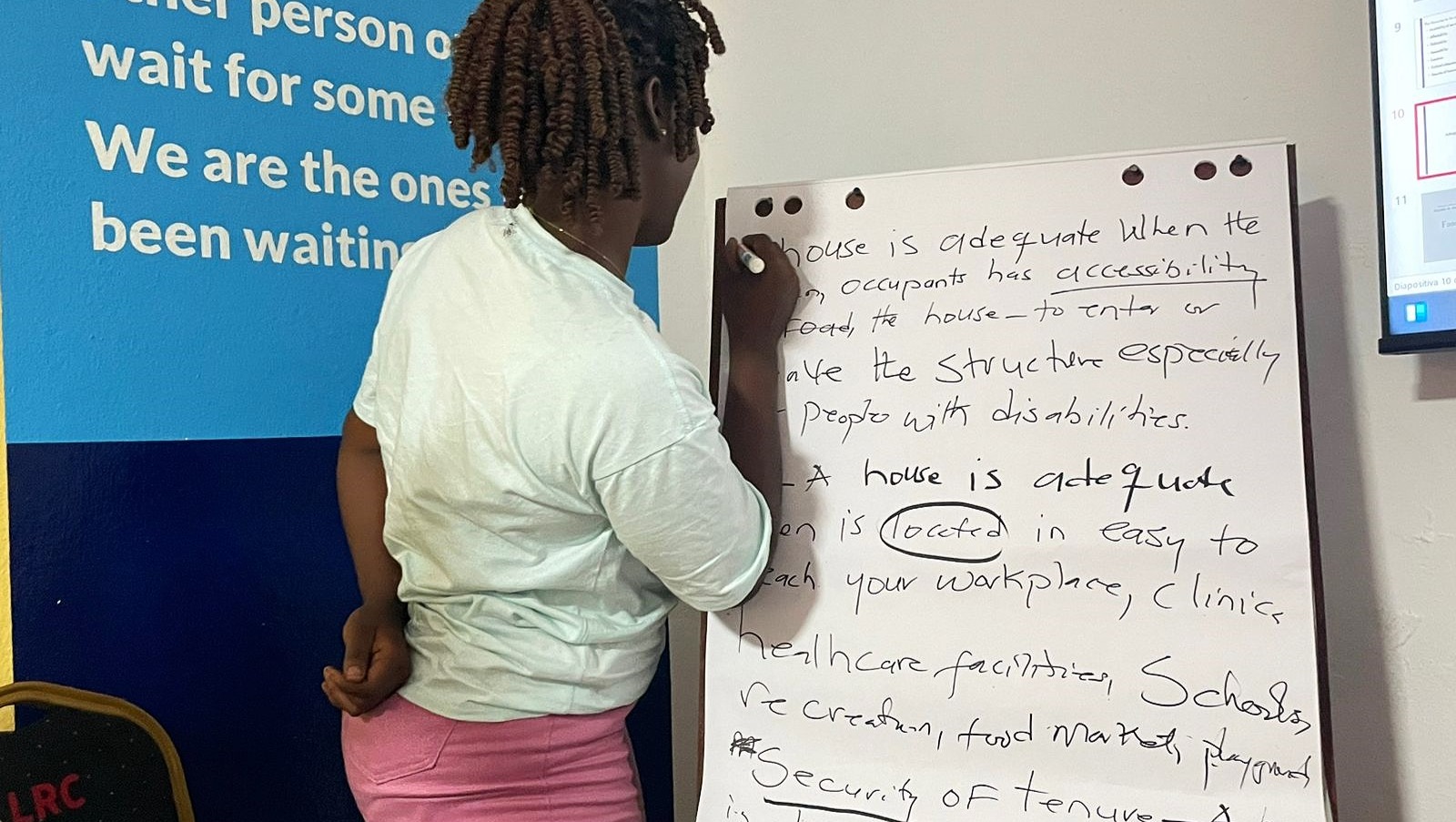
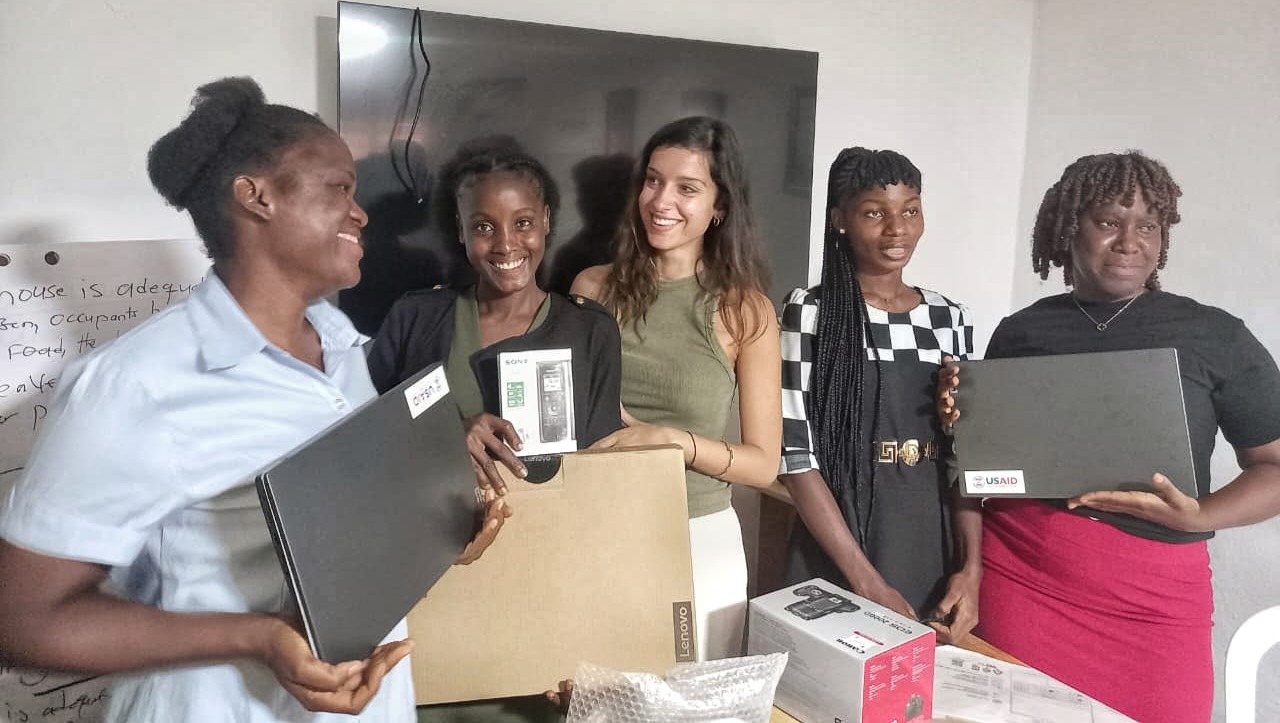
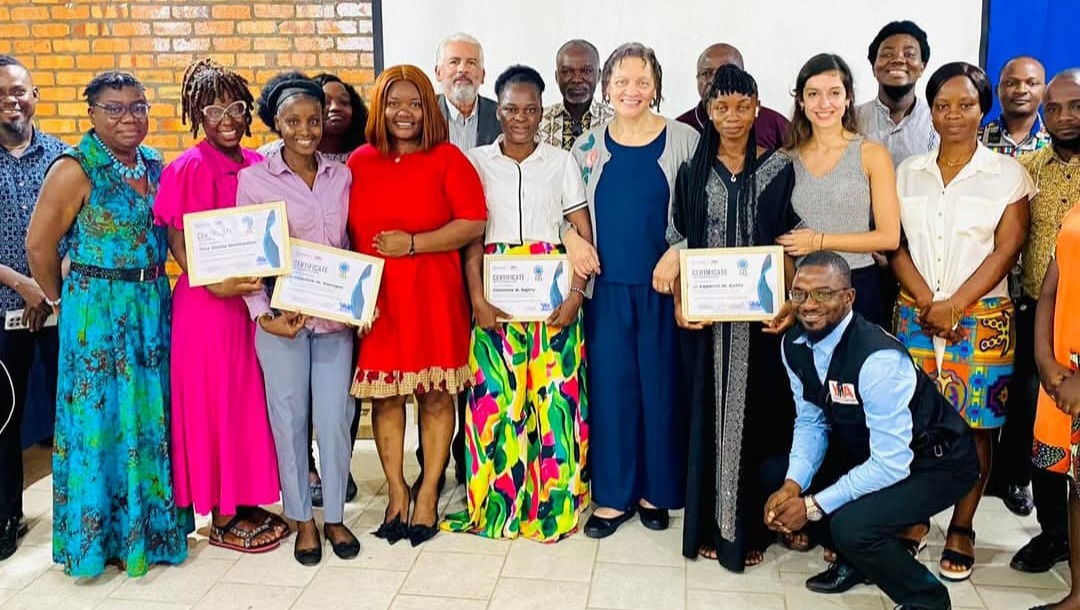
Phase 2: Training the Next Generation: These newly-certified trainers, alongside me, will now mentor and train 20 female journalism students in five counties. They will pass on the skills they gained during the 10-day training including:
• Impactful Storytelling: Crafting compelling narratives from firsthand accounts of human rights violations and social injustice stories.
• Empathetic Interviewing: Developing techniques to sensitively gather stories from affected communities.
• Data-Driven Reporting: Using reliable statistics and expert voices to add credibility and depth to their stories.
Why This Matters:
This isn't just a training course; it's a mentorship program designed to foster a self-sustaining network of human rights defenders and social justice reporters. We are empowering these women to amplify unheard voices, uncover systemic issues, and drive meaningful change in their communities. Your support will ensure this critical work continues, allowing them to transform personal stories into powerful tools for social justice.
Activity 2: AMPLIFYING VOICES. FROM TESTIMONIES TO IMPACTFUL ADVOCACY
This project is focused on transforming personal stories of social injustice into powerful tools for advocacy and change. This process involves a three-stage approach.
a) Collecting and Crafting Stories
Our trained journalists will collect firsthand testimonies from individuals in their communities, focusing on critical issues like gender-based violence, human trafficking, female genital mutilation, child labor.
The goal is to create compelling narratives centered on a main character, which helps audiences connect emotionally with broader issues.
b) Guided Reporting and Writing
With my intensive hands-on guidance the journalists will learn to:
• Evaluate story pitches and connect with key sources.
• Craft powerful feature articles that combine personal voices with expert insights and data.
• Maintain objectivity while conveying the emotional reality of victims' experiences to create a powerful connection with the audience.
c) Maximizing Reach and Impact
To ensure these stories lead to action, we will use a multi-platform dissemination strategy:
• Widespread publication in Liberian newspapers and on radio stations across the five project counties.
• Strategic public display of hard copies in key locations like hospitals, schools, and markets.
• School-based advocacy campaigns led by the journalists to raise awareness among students.
Activity 3: FROM REPORTERS TO TRAINERS
This activity is a vital step toward long-term sustainability by building local leadership. It focuses on transforming the initial group of three Liberian journalists into certified trainers and mentors.
The three journalists who completed my initial training are now taking on leadership roles. They will co-facilitate training sessions with me and then independently train an additional 20 female journalism students across five counties.
This approach creates a self-sustaining model for knowledge transfer, ensuring that the skills of social justice reporting will continue to be taught and practiced long after the project concludes.
Why This Matters:
This initiative goes beyond training; it's a commitment to the professional and economic empowerment of these women.
They will receive a fair monthly salary throughout the project, ensuring their financial independence.
At the project's end, all provided technical equipment, including recorders, cameras, and laptops, will be transferred to them, empowering them to continue their vital work as independent social justice journalists.
My Mentorship and Oversight
As these new trainers take on their roles, I will provide continuous oversight through brainstorming sessions and monitoring to ensure the quality of the training and the project's overall goals are met.
This will ensure that our student journalists are well-prepared for their fieldwork and ready to become effective human rights advocates.
Activity 4: MAXIMIZING IMPACT. STRATEGIC COMMUNICATION FOR SOCIAL JUSTICE
This last activity is focused on a comprehensive communication strategy to ensure the powerful human rights stories created by our journalists reach the widest possible audience and inspire real change.
We'll use a multi-platform approach to maximize impact:
• Traditional Media Amplification: We'll publish stories in national newspapers and on local radio stations in all five counties to reach diverse audiences, including those in remote areas.
• Community-Level Saturation: To truly embed these narratives in communities, we'll distribute and post hard copies of articles in key public places like hospitals, markets, schools, and universities.
• Strategic Partnerships: We'll collaborate with local CSOs focused on human rights, education, and health to leverage their existing community networks and ensure our stories reach those most affected by the issues.
• Targeted Outreach: Our trainer-reporters will lead advocacy campaigns in schools across the five counties, sharing and discussing articles with young audiences. Student reporters will also replicate these activities in their own schools.
• Social Media Engagement: We'll use social media to share targeted messages and build awareness around critical social justice issues, engaging a younger, digitally connected audience.
-
PROJECT SUSTAINABILITY & LONG-TERM IMPACT
This project is built for lasting change. We aren't just completing a program; we're creating a self-sustaining model. Our core plan is to train three young Liberian women to become certified trainers themselves. They will then mentor and train an additional 20 female journalism students across five counties. This approach creates a sustainable network of human rights defenders and social justice reporters.
We are committed to the professional and economic empowerment of these women. They will receive a fair monthly salary as full-time employees, and at the end of the project, they will be given all essential equipment—cameras, laptops, and recorders—to continue their vital work as independent journalists.
-
FINANCIAL TRANSPARENCY & ACCOUNTABILITY
The original cost of the project is $200,000.
We want to be fully transparent about our funding goals and how every donation will be used.
The amount we raise will directly determine the scale of our work. If we do not reach our full funding target, we will have to make strategic cuts to some activities and limit the number of areas where the project can be implemented.
Your contribution, no matter the amount, will directly impact our ability to empower more young women and expand our reach. Every dollar helps us get closer to our goal.
***
To ensure every donation is managed with the utmost care and transparency, a portion of the funds will be allocated to a financial expert. This individual will meticulously manage the budget, ensuring your support is handled with complete accountability.
-
WHAT THEY SAID ABOUT MY PROJECT
Before the project was shut down, those involved saw the impact firsthand.
“What I really appreciated was being part of a group of women all focused on social justice issues. Knowing that these issues often disproportionately affect women made that focus even more meaningful. Having a woman as our trainer and guide was also fantastic, and it made me feel even more prepared and inspired to tell the stories of other women”. Laymah Kollie
“This course really stands out because it's the first intensive social justice training I've had since starting in journalism. What's been particularly valuable is the hands-on approach. It wasn't just theoretical; while there were readings involved, which is different from my usual experience, the focus on practical application, like improving interview techniques and overall reporting skills, feels like it will genuinely help me grow on this path”. Christine Sajery
"I was particularly impressed by the story samples the consultant Solano brought in. They really helped us understand how to structure a story and keep the reader engaged. Seeing examples from BBC Africa was also great because it showed us how the things we were learning could be implemented in a real-world context, making it easier to envision ourselves doing the same”. Decontee Karngar
My vision and works as an independent reporter from Liberia
As an independent reporter, I've spent time on the ground in Liberia, documenting the very human rights issues. My starting point is always the human side of every person I meet—their complexities, their struggles, and their contradictions.
I believe in moving beyond the simple, prepackaged categories that confine a subject, a story, an issue to simplistic roles of good or evil, victim or criminal; black or white.
My work in the field has taught me that the truth is rarely so clear-cut; it often lies in the middle, in the gray areas. It is my firm belief that our readers have the right to a story in its most complete and complex form—a truth we, as reporters, are uniquely positioned to offer.
A clear testament to my journalistic method is my latest report on the Liberian women who survive by selling the deadly Kush drug.
This is the heart of what I was teaching these young Liberian women.
Links to my latest feature articles:
PLEASE NOTE:
For more information on the work we’ve done so far, our future plans, project cost details or other, please feel free to contact me.
